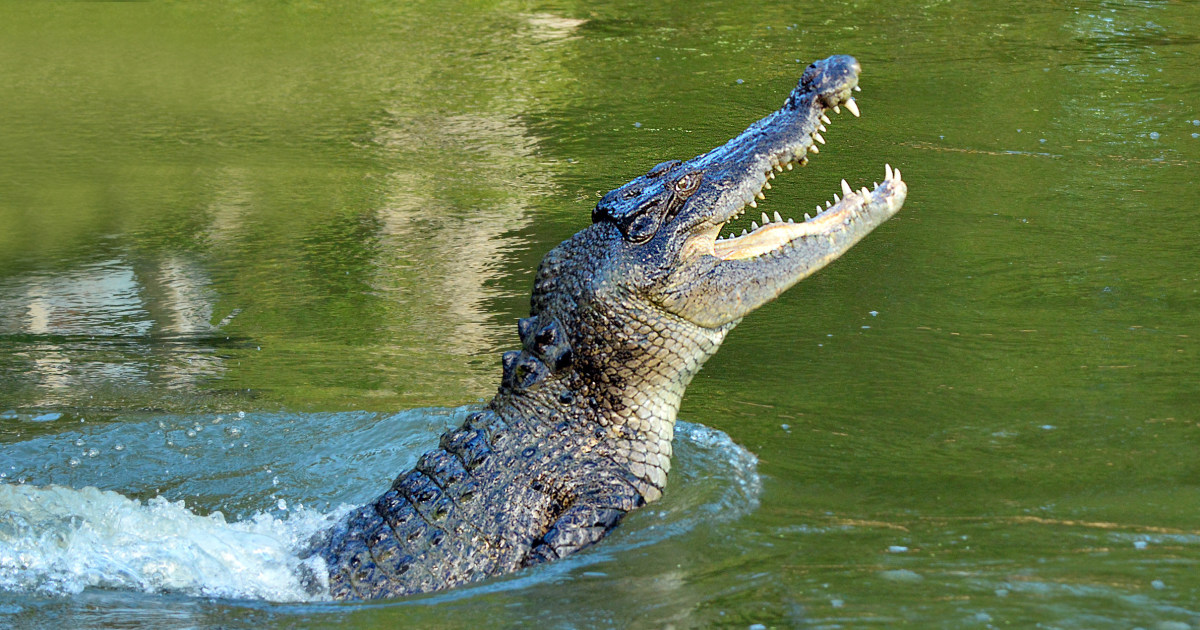
An Australian man suffered head injuries during a harrowing encounter with a crocodile in Queensland over the weekend.
Marcus McGowan was snorkeling with his wife and friends off the coast of Cape York on Saturday when he was attacked from behind, according to a statement from McGowan released by the Cairns and Hinterland health service Tuesday.
The crocodile, which McGowan believes to have been a juvenile, had its jaws around his head.
“I was able to lever its jaws open just far enough to get my head out,” McGowan said. “The crocodile then attempted to attack me a second time, but I managed to push it away with my right hand, which was then bitten by the croc.”
McGowan was then taken to Haggerstone Island where his friend, a fireman, administered first aid until an emergency helicopter arrived to transport him to a nearby hospital. He said he was treated for lacerations to his scalp as well as puncture wounds to his head and hand, McGowan said.
Ultimately, McGowan said he was simply in the wrong place at the wrong time.
“I live on the Gold Coast and am a keen surfer and diver, and understand that when you enter the marine environment, you are entering territory that belongs to potentially dangerous animals, such as sharks and crocodiles,” he said in his statement.
McGowan has asked for privacy as he recovers.
Saltwater crocodiles, native to Australia, have the potential to grow up to seven meters, more than 22 feet, according to the Australian Zoo. They are also capable of holding their breath underwater for up to eight hours.
“They use the murkiness of the water to remain unseen before ambushing their prey, grabbing them with their powerful jaws and death-rolling them back into the water,” the zoo said on its website.
Though the saltwater crocodile population has rebounded after years of poaching, they are still considered vulnerable in Queensland, the zoo said.
The last recorded attack by a crocodile was a non-fatal attack also around Cape York in February, according to the Queensland Department of Environment and Science. The department has a record of attacks from December 1985 through March 2023, with the last recorded fatal attack in the state occurring in February 2021.
“The Queensland Government is committed to a crocodile management program that delivers appropriate protection of public safety while enabling the ongoing survival of estuarine crocodiles in the wild,” the department said on its website.






